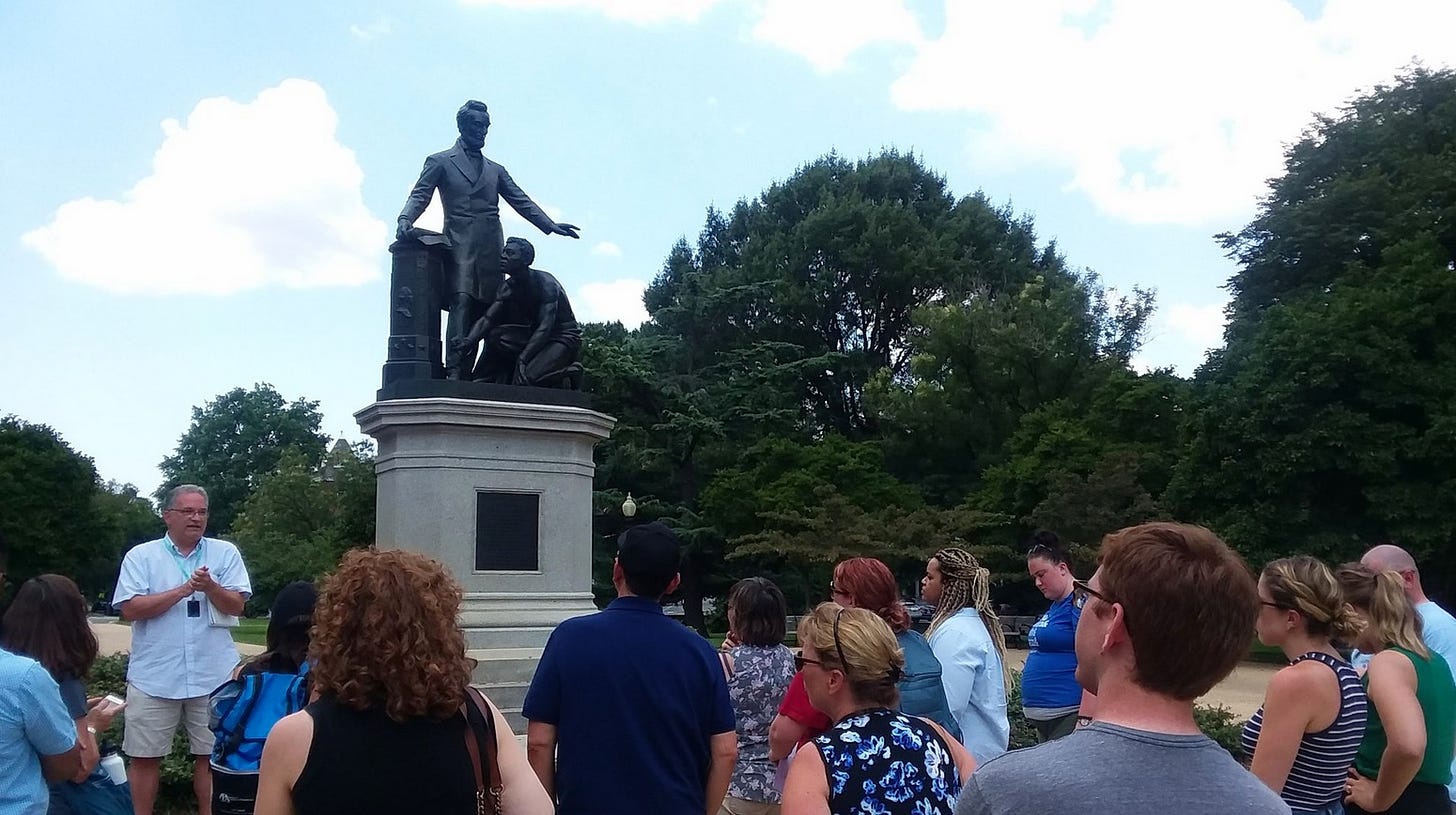Tomorrow I head down to Washington, D.C. for the week to work with history educators from around the country on the history and memory of the Civil War and Reconstruction. Of all the ways that I have had the opportunity to share my passion for history with others, working with my fellow educators remains the most rewarding. This particular professional development workshop, organized by the incredible education staff at Ford’s Theatre, is one of my favorites.
There are few subjects more challenging to teach than the history of the Civil War and Reconstruction. The history is complex and unfortunately much of this subject matter, especially the widespread terrorism experienced by African Americans throughout the postwar period and the broader history of white supremacy, remains politically charged.
Washington, D.C is the perfect place to explorea this history. The city served as a testing ground for much of the legislative agenda of the Radical Republicans during Reconstruction—much of it demanded by African Americans themselves.
Emancipation came to D.C. in April 1862 as a result of Congressional legislation. The Freedmen’s Bureau established public schools beginning in 1865, including Howard University. Black residents of the city demanded the right to vote, which became a reality in 1867. This just scratches the surface.

We get to discuss this history at places like Howard University, Arlington National Cemetery, the U.S. Capitol Building, and Ford’s Theatre.
The city’s rich monument landscape also allows us to explore how the war and its legacy have been remembered over time and provides the perfect foundation to discussing the current debates surrounding history education and the public display of Confederate symbols.
The teachers that I will have the pleasure of working with throughout this week are just a small fraction of the thousands across the country who are taking advantage of a few weeks away from the classroom to advance their knowledge and learn new skills.
Unfortunately, we don’t talk about this nearly enough. We don’t celebrate our teachers. Our national conversation about education over the past few years has been dominated by fear-mongering politicians who insist that teachers are actively working to indoctrinate their students to hate their country and accept individual responsibility for every dark or shameful moment.
Some of our teachers arrive with very little knowledge of the Civil War and Reconstruction while others come with extensive experience teaching the subject in the classroom. We learn from one another and a number of experts that join us during the week, including Kate Masur, Hillary Green, Edna Greene Medford, and Holly Pinheiro. The workshop is informed by the latest and best scholarship on the subject.
I’ve worked with history teachers from many of the states that have been impacted by legislation that casts suspicion on the entire profession and makes it sometimes impossible for them to fulfill their obligations to their students. We are losing some of our most passionate and knowledgeable teachers as a result of the intense scrutiny and demonization from certain circles.
And yet these teachers continue to take the initiative to improve their knowledge and skills during their summer break.
They ask little in return, but they certainly deserve our respect and support.





I was devastated in 11th Grade when Mr. McManus gave me an F because he believed “these are not your words!” Accusing me of plagiarizing was devastating but not believing me capable haunts me to this day. I had teachers willing to go to bat for me, but I took that F and have fueled my CW research with it to this day.
Good morning! ☀️ Let me be the first to welcome you to my hometown, in advance of your arrival tomorrow!